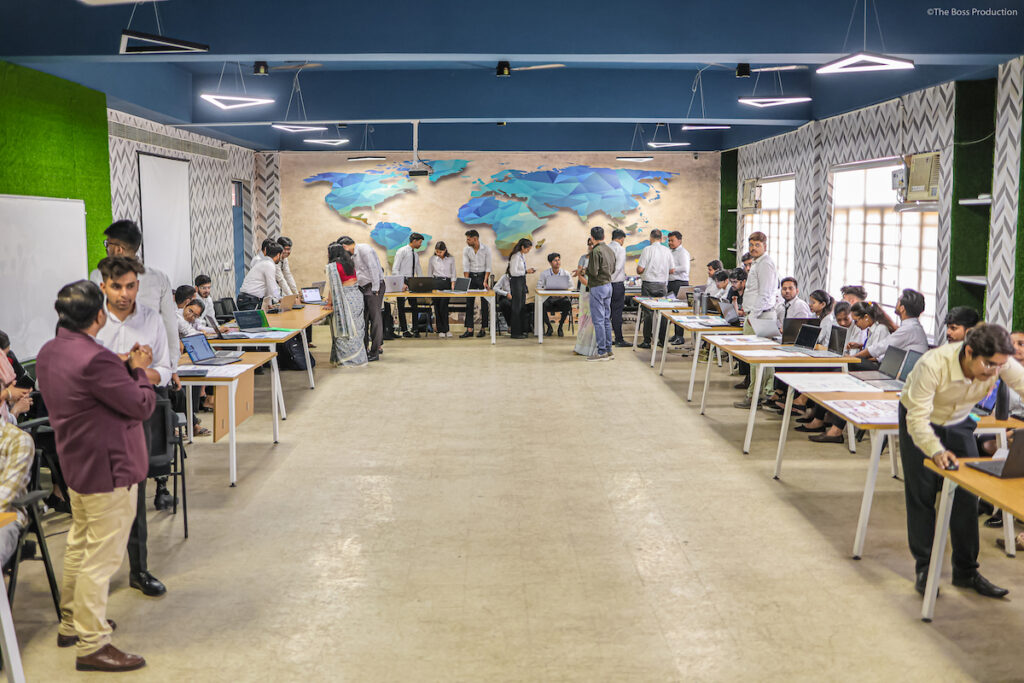Diploma in Pharmacy after 10th
Pursuing a Diploma in Pharmacy (D Pharma) after completing the 10th grade is an early entry into the pharmaceutical field. This course is meticulously designed for students aiming to initiate a career in the healthcare sector, particularly focusing on the field of pharmacy.
Overview:
Eligibility: Typically, students are required to complete their 10th grade with a strong foundation in science subjects, especially in physics, chemistry, and biology or mathematics. However, most colleges prefer candidates who have completed their 12th grade with science subjects.
Duration: The D Pharma course usually spans over 2 years, divided into four semesters. Some institutions may also offer an additional period for practical training.
Curriculum: The curriculum covers various aspects of pharmaceutical sciences, including pharmacology, pharmaceutical chemistry, pharmacognosy, and pharmacy practice.
Career Prospects: After completing D Pharma, students can work as registered pharmacists in hospitals, community pharmacies, or pharmaceutical companies. They can also choose to further their education by pursuing a Bachelor’s in Pharmacy (B.Pharm).
Some of the most opted courses in India and St. Andrews college or different Engineering college or Management colleges are as follows:-
- Btech
- BCA
- MCA
- Btech CSE
- MTech
- Btech ETCE
- BBA
- MBA
- DPharma – St. Andrews College of Pharmacy
- BPharma – St. Andrews College of Pharmacy
- BArch – St. Andrews College of Architecture
Diploma in Pharmacy (D Pharma) Course
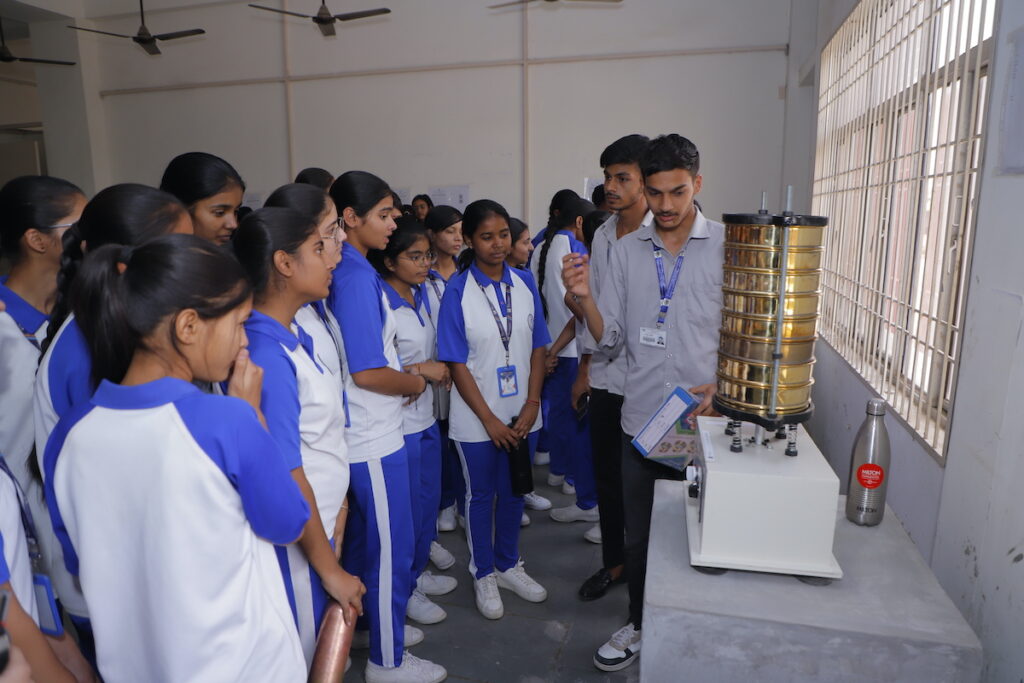
The Diploma in Pharmacy (D Pharma) is a short-term, career-oriented program designed to prepare students for roles in the pharmaceutical sector.
It is an ideal course for those who aspire to enter the healthcare and pharmaceutical industry with a focus on the practical aspects of pharmacy, including the preparation, dispensing, and appropriate use of medication.
Course Structure:
Duration: The D Pharma course typically spans 2 years, divided into four semesters. In some cases, an additional period of practical training or internship may be required.
Eligibility: Candidates must have completed their 12th grade with science subjects (Physics, Chemistry, Biology/Mathematics) to enroll in pharmacy courses. Some institutions may also accept students who have completed 10th grade through bridge or pre-diploma courses for admission into pharma courses.
Curriculum: The course covers various subjects including:
Pharmaceutics: Focuses on the formulation of drugs and medicines.
Pharmacology: Studies the effects of drugs on the human body.
Pharmaceutical Chemistry: Involves the chemical aspects of drug design and synthesis.
Pharmacognosy: Deals with medicinal drugs obtained from plants and other natural sources.
Hospital and Clinical Pharmacy: Covers the dispensing of drugs in clinical settings and patient counseling.
Pros of Pursuing D Pharma:
Quick Entry into the Workforce: With a duration of just 2 years, D Pharma allows students to enter the pharmaceutical field quickly.
High Demand for Pharmacists: Pharmacists are essential in both hospitals and retail settings, ensuring a steady demand for qualified professionals.
Practical Skills: The course emphasizes hands-on training, preparing students for the practical challenges of pharmacy work.
Pathway to Further Studies: Graduates can pursue advanced degrees such as a Bachelor of Pharmacy (B.Pharm) to enhance their qualifications and career prospects.
Affordable Education: Compared to longer degree programs, D Pharma is generally more affordable, making it accessible to a broader range of students.
Career Opportunities:
After completing the D Pharma course, graduates can work in various roles, such as:
Community Pharmacist: Working in retail pharmacies to dispense medications and provide health advice.
Hospital Pharmacist: Managing medication distribution and providing drug-related information in hospitals.
Pharmaceutical Sales Representative: Promoting and selling pharmaceutical products to healthcare professionals.
Pharmacy Technician: Assisting pharmacists in preparing and dispensing medications.
Entrepreneur: Opening a retail pharmacy or drug store.
Eligibility Criteria for Diploma in Pharmacy After 10th
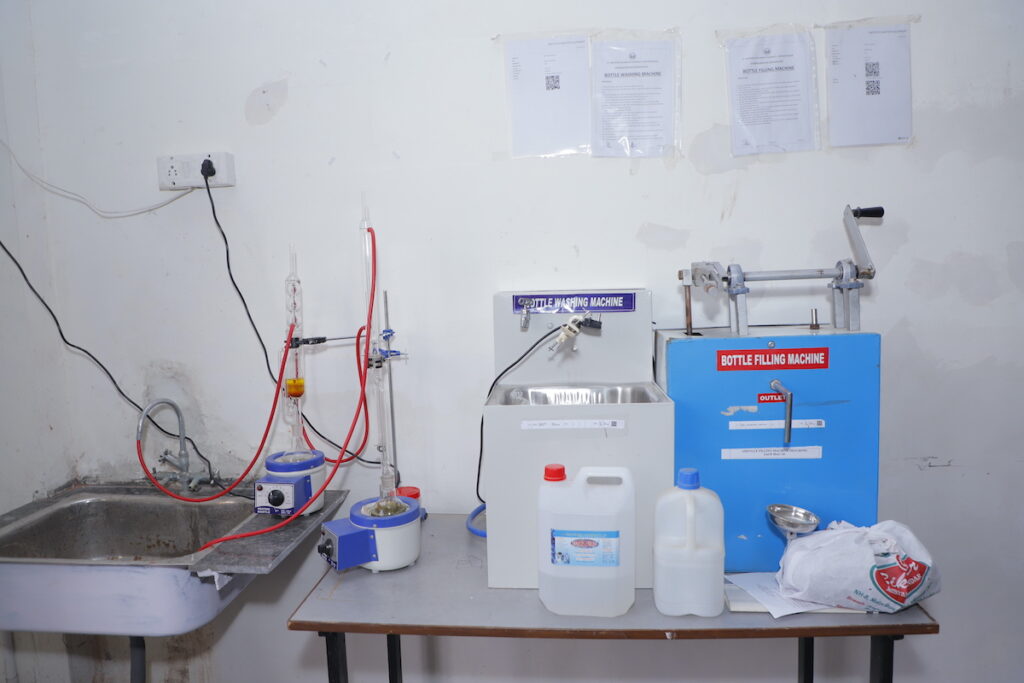
To pursue a Diploma in Pharmacy (D Pharma) after completing 10th grade, students must meet the following eligibility criteria:
Educational Qualification
- Completion of 10th Grade: Students must have successfully completed their 10th grade or equivalent from a recognized board to pursue this diploma course.
- Minimum Marks: Generally, students should have a minimum aggregate percentage of 50% in 10th grade. Some institutions may have a slightly lower or higher percentage requirement for pharmacy courses.
Subject Requirements
- Science Background: Students should have studied science subjects, particularly Physics, Chemistry, and Biology/Mathematics, in their 10th grade. Some institutions may require a specific minimum percentage in these subjects.
Age Limit
- Minimum Age: The minimum age requirement is typically 17 years at the time of admission. Some institutions may have different age criteria.
Entrance Exams
- Institution-Specific Exams: Some colleges may conduct their own entrance exams or admission tests. Students must check the specific requirements of the institutions they are interested in.
Reservation Criteria
- SC/ST/OBC Categories: Institutions may have reserved seats for students belonging to SC/ST/OBC categories, and eligibility criteria may be relaxed for these candidates.
Additional Requirements
- Medical Fitness: Some institutions might require a medical fitness certificate to ensure that students are physically fit to handle the demands of the pharmacy course.
Application Process
- Application Form: Students need to fill out the application form of the chosen institution, providing proof of their educational qualifications, and other required documents.
Admission Process for Diploma in Pharmacy After 10th
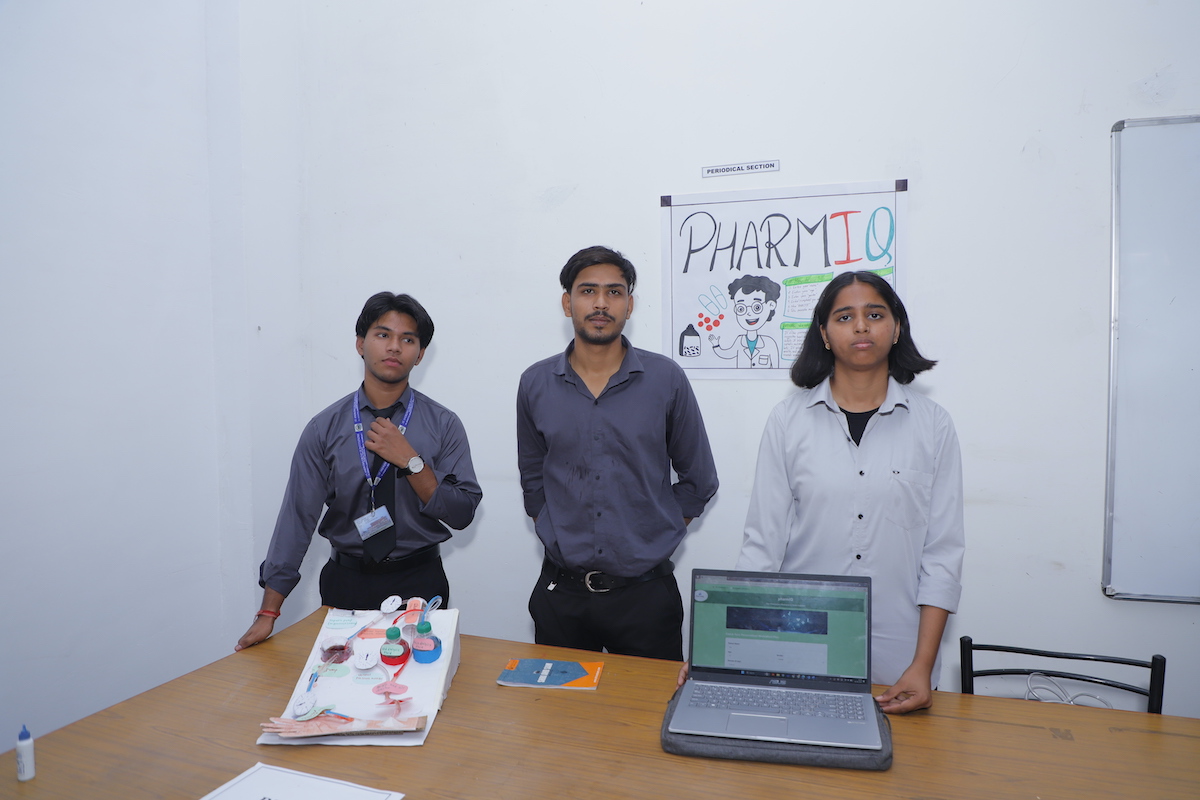
The admission process for a Diploma in Pharmacy (D Pharma) after completing 10th grade typically involves the following steps:
Research and Selection
- Identify Colleges: Research and shortlist colleges offering D Pharm programs. Consider factors such as location, fee structure, infrastructure, and accreditation.
- Check Eligibility: Ensure you meet the eligibility criteria for the institutions you are interested in.
Application Form
- Obtain Application Form: Download or collect the application form from the college’s official website or admission office.
- Fill Out Form: Complete the form with accurate personal and educational details. Attach required documents such as mark sheets, age proof, and photographs.
Entrance Exams (If Applicable)
- Institution-Specific Exams: Some colleges conduct entrance exams or admission tests. Prepare and appear for these exams as per the schedule provided by the institution.
- State-Level Exams: In some states, there may be common entrance tests for pharmacy admissions. Check if your state has such exams.
Document Submission
- Submit Documents: Provide necessary documents such as:
- 10th-grade mark sheet and certificate
- Birth certificate or age proof
- Passport-sized photographs
- Domicile certificate (if required)
- Caste certificate (if applicable)
- Proof of Payment: Submit the receipt of application fee payment, if applicable.
Merit List/Selection
- Merit-Based Admission: Some colleges select students based on merit, which is determined by the marks obtained in 10th grade or entrance exams.
- Counseling/Interview: Some institutions may require counseling sessions or interviews as part of the selection process.
Admission Confirmation
- Offer Letter: Once selected, you will receive an admission offer letter or confirmation.
- Fee Payment: Pay the required admission fee and complete any additional formalities.
Enrollment
- Complete Enrollment: Submit the remaining documents, attend orientation sessions, and finalize your enrollment.
- Start Classes: Begin attending classes as per the academic schedule provided by the institution.
Additional Requirements
- Medical Fitness: Some institutions may require a medical fitness certificate.
- Uniform and Supplies: Purchase any required uniforms, books, and laboratory equipment as specified by the college.
Diploma in Pharmacy Fee Structure After 10th

Here’s a typical fee structure for a Diploma in Pharmacy (D Pharma) program after completing 10th grade:
Tuition Fees
- General Range: ₹50,000 – ₹2,00,000 per annum
- Varies by Institution: Higher fees may apply in private and specialized institutions.
Laboratory Fees
- General Range: ₹5,000 – ₹15,000 per annum
- Includes: Costs for lab materials and practical sessions.
Examination Fees
- General Range: ₹1,500 – ₹5,000 per semester
- Includes: Registration for exams, practicals, and re-evaluations.
Library Fees
- General Range: ₹1,000 – ₹5,000 per annum
- Includes: Access to books, journals, and online resources.
Uniform and Safety Gear
- General Range: ₹3,000 – ₹5,000
- Includes: Lab coats, safety goggles, and other required attire.
Books and Study Materials
- General Range: ₹5,000 – ₹15,000 per annum
- Includes: Textbooks, reference books, and study guides.
Miscellaneous Fees
- Workshop/Seminar Fees: ₹2,000 – ₹10,000 per year
- Project Work: ₹3,000 – ₹10,000 (final year project costs)
Hostel Fees (If Applicable)
- General Range: ₹40,000 – ₹1,00,000 per annum
- Includes: Accommodation and basic amenities.
Transportation Costs (If Applicable)
- General Range: ₹5,000 – ₹20,000 per annum
- Includes: Daily commuting or travel expenses.
Additional Costs
- Medical Fitness Certificate: ₹500 – ₹1,500 (if required)
- Others: Potential additional costs for special equipment or materials specific to the course.
Syllabus of Diploma in Pharmacy After 10th

Here’s a broad overview of the syllabus in pharmacy course:
Year 1
Pharmaceutics – I
- Pharmaceutical Chemistry: Introduction to the chemistry of drugs, including their properties and reactions.
- Pharmaceutical Formulations: Basics of formulation and manufacturing of pharmaceutical products, including tablets, capsules, and liquids.
Chemistry – I
- Organic Chemistry: Study of organic compounds and their reactions, focusing on medicinal chemistry.
- Inorganic Chemistry: Introduction to inorganic compounds, including their pharmaceutical applications.
Pharmacognosy – I
- Botany: Study of medicinal plants and their identification.
- Pharmacognosy Basics: Introduction to the principles and techniques of isolating and identifying plant-based drugs.
Pharmacology – I
- General Pharmacology: Basics of drug actions, interactions, and side effects.
- Systemic Pharmacology: Study of drugs affecting different systems of the body.
Anatomy and Physiology
- Human Anatomy: Structure of the human body and its systems.
- Human Physiology: Functioning of the body systems and their relevance to pharmacology.
Pharmaceutical Jurisprudence
- Legal Aspects: Laws and regulations governing the practice of pharmacy, including drug control laws and ethics.
Year 2
Pharmaceutics – II
- Advanced Formulations: Study of advanced drug delivery systems and technologies.
- Pharmaceutical Technology: Techniques involved in the production of pharmaceuticals, including manufacturing processes and quality control.
Chemistry – II
- Medicinal Chemistry: Advanced topics in drug chemistry, including synthesis and structure-activity relationships.
- Biochemistry: Basics of biochemical processes and their relation to pharmacy.
Pharmacognosy – II
- Pharmacognosy Techniques: Advanced methods for the extraction, isolation, and analysis of plant-based drugs.
- Ethnobotany: Study of traditional medicinal plants and their uses.
Pharmacology – II
- Clinical Pharmacology: Study of drugs in clinical settings, including drug interactions and adverse effects.
- Toxicology: Principles of toxicology and management of poisoning.
Hospital Pharmacy
- Hospital Pharmacy Practice: Basics of working in a hospital pharmacy, including drug dispensing and patient counseling.
- Clinical Pharmacy: Role of pharmacists in clinical settings, including medication management and patient care.
Communication and Soft Skills
- Pharmaceutical Communication: Effective communication skills for patient interaction and professional collaboration.
Career Opportunities after Diploma Course in the Pharmaceutical Industry
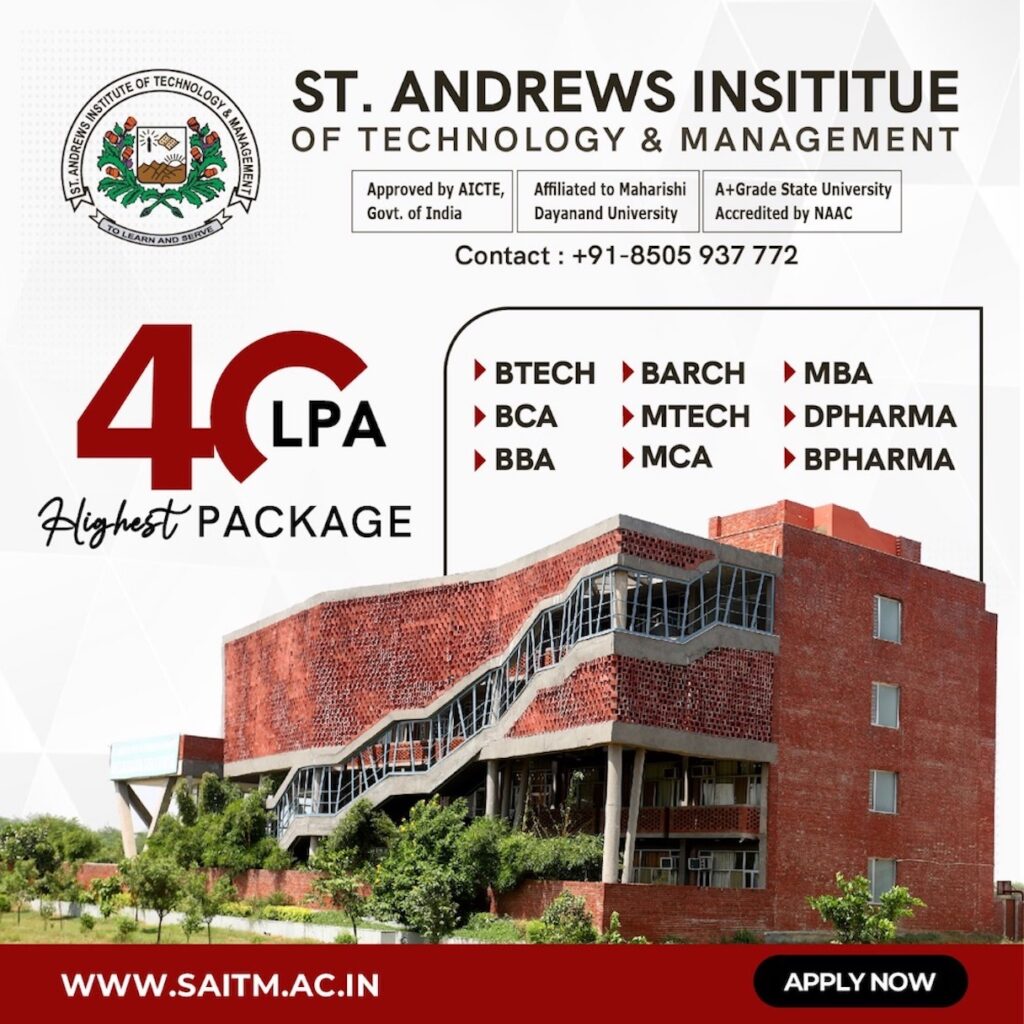
Here are some potential career paths after choosing diploma course:
Community Pharmacist
- Role: Dispensing medications, providing patient counseling, and managing a community pharmacy.
- Workplaces: Independent pharmacies, retail chains & community pharmacy.
Hospital Pharmacist
- Role: Managing and dispensing medications in a hospital setting, while collaborating closely with medical staff and medical representative to optimize drug therapy.
- Workplaces: Hospitals, clinics.
Industrial Pharmacist
- Role: Working in pharmaceutical manufacturing, quality control, and research & development.
- Workplaces: Pharmaceutical companies, biotech firms.
Pharmacy Technician
- Role: Assisting pharmacists with medication preparation, managing inventory, and maintaining patient records.
- Workplaces: Pharmacies, hospitals, clinics.
Sales and Marketing Executive
- Role: Promoting and selling pharmaceutical products to healthcare professionals and institutions.
- Workplaces: Medical sales firms.
Regulatory Affairs Specialist
- Role: Ensuring that pharmaceutical products comply with regulations and standards.
- Workplaces: Regulatory agencies, pharmaceutical companies.
Clinical Research Coordinator
- Role: Overseeing clinical trials, managing research data, and ensuring compliance with regulatory requirements.
- Workplaces: Research institutions, clinical trial organizations.
Pharmaceutical Consultant
- Role: Providing expert advice on drug therapy, medication management, and healthcare practices.
- Workplaces: Consulting firms, healthcare organizations.
Academia and Training
- Role: Teaching and training future pharmacists or working as a pharmacy educator.
- Workplaces: Educational institutions, training centers.
Entrepreneurship
- Role: Starting and managing a pharmacy business, such as a retail pharmacy or a pharmaceutical service.
- Workplaces: Self-employed, business owner.
Public Health Pharmacist
- Role: Working on health promotion and disease prevention programs, contributing to public health initiatives.
- Workplaces: Public health agencies, non-profit organizations.
Drug Inspector
- Role: Inspecting and ensuring compliance of pharmaceutical products and practices with regulatory standards.
- Workplaces: Government agencies, regulatory bodies.
Benefits of Choosing Diploma in Pharmacy After 10th

Choosing a Diploma in Pharmacy (D Pharma) after 10th grade offers several benefits:
Early Entry into the Pharmaceutical Field
- Quick Start: The D Pharma program is a relatively shorter course, allowing you to enter the pharmaceutical field early compared to a Bachelor’s degree.
- Early Experience: Gain practical experience and start working in pharmacies or healthcare settings sooner.
Diverse Career Opportunities
- Variety of Roles: Opens doors to various roles such as community pharmacist, hospital pharmacist, pharmacy technician, and more.
- Industry Demand: The pharmaceutical and healthcare sectors are growing, with a constant demand for skilled professionals.
Foundational Knowledge
- Basic Understanding: Provides a strong foundation in pharmaceutical sciences, including drug formulation, pharmacology, and pharmacognosy.
- Skill Development: Develops essential skills for medication management, patient counseling, and pharmaceutical practices.
Practical Training
- Hands-On Experience: Includes practical training and internships, providing real-world experience and enhancing employability.
- Industry Exposure: Direct exposure to pharmaceutical practices and hospital settings.
Cost-Effective
- Lower Cost: Generally more affordable compared to a Bachelor’s degree in Pharmacy (B.Pharm), making it a cost-effective option.
- Shorter Duration: Shorter duration of the course reduces overall educational expenses.
Pathway to Further Education
- Advanced Studies: Provides a pathway to further education, such as pursuing a B.Pharm or other specialized courses for career advancement.
- Bridge Course: Acts as a bridge for those interested in higher studies in pharmacy or related fields.
Job Readiness
- Employability: Equips you with job-ready skills and qualifications, making it easier to find employment immediately after completing the course.
- Certification: Provides a recognized qualification that meets industry standards.
Contribution to Healthcare
- Patient Care: Contribute to improving patient health and well-being by ensuring the safe and effective use of medications.
- Community Impact: Play a vital role in community health through pharmacy practice.
Flexibility
- Work Options: Offers flexibility in work settings, including pharmacies, hospitals, research labs, and more.
- Part-Time and Full-Time: Opportunities to work part-time or full-time based on your preferences and career goals.
Entrepreneurial Opportunities
- Own Business: Provides the knowledge and skills needed to start and manage your own pharmacy business or related venture.
List of Top Diploma in Pharmacy Colleges in India

Here’s a list of some top pharmacy colleges offering Diploma in Pharmacy course in India:
St. Andrews College of Pharmacy (SACP)
Location: Gurgaon, Haryana
Highlights: Offers a well-rounded D Pharma program with modern facilities and industry connections.
Delhi Institute of Pharmaceutical Sciences and Research (DIPSAR)
Location: Delhi
Highlights: Renowned for its quality education and research in pharmacy.
Jamia Hamdard University
Location: Delhi
Highlights: Offers a comprehensive D Pharma course with a focus on practical training and research.
Bangalore College of Pharmacy
Location: Bangalore, Karnataka
Highlights: Known for its excellent infrastructure and industry-oriented curriculum.
JSS College of Pharmacy
Location: Mysore, Karnataka
Highlights: Offers well-structured D Pharma courses with a focus on practical experience.
Government College of Pharmacy
Location: Bangalore, Karnataka
Highlights: Provides a strong foundation in pharmacy with experienced faculty and good facilities.
Diploma in Pharmacy Course Duration and Subjects

Course Duration
- Total Duration: 2 years
Subjects Covered
Year 1
- Pharmaceutics – I: Basics of drug formulations and technology.
- Pharmaceutical Chemistry – I: Organic and inorganic chemistry relevant to pharmaceuticals.
- Pharmacognosy – I: Study of medicinal plants and their uses.
- Pharmacology – I: Introduction to drug actions and interactions.
- Anatomy and Physiology: Structure and function of the human body.
- Pharmaceutical Jurisprudence: Legal and ethical aspects of pharmacy practice.
Year 2
- Pharmaceutics – II: Advanced drug formulations and delivery systems.
- Pharmaceutical Chemistry – II: Advanced medicinal chemistry and synthesis.
- Pharmacognosy – II: Advanced techniques in plant-based drug analysis.
- Pharmacology – II: Clinical pharmacology and toxicology.
- Hospital and Clinical Pharmacy: Practical training in hospital settings.
- Communication and Soft Skills: Patient and professional communication skills.
Entrance Exams for Diploma in Pharmacy

Here are some common entrance tests and admission processes to get into pharmacy colleges:
Common Entrance Tests
State-Level Entrance Exams
- Examples: Maharashtra CET, Uttar Pradesh JEE, Punjab PMET.
- Purpose: State-specific exams that many colleges use for admissions.
Institution-Specific Exams
- Examples: Various colleges conduct their own entrance tests.
- Purpose: Some colleges prefer conducting their own entrance exams or interviews.
Central-Level Exams
- Examples: Rarely used, but some national-level tests might be considered by certain institutions.
Direct Admission
- Criteria: Some institutions admit students based on merit in the 10th-grade examination without an entrance exam.
Admission Process
Application
- Form: Obtain and submit the application form from the college or university.
- Documents: Typically include 10th-grade mark sheet, ID proof, and passport-sized photographs.
Entrance Exam
- Exam: Take the state or institution-specific entrance test if required.
- Syllabus: Often includes subjects like Chemistry, Biology, and Mathematics.
Merit List
- Selection: Based on the entrance exam scores or 10th-grade marks.
- Interview: Some institutions may conduct an interview or counseling session.
Admission
- Process: Complete the admission formalities, including fee payment and document verification.
Enrollment
- Classes: Begin classes as per the academic calendar of the institution.
Higher Studies after Diploma in Pharmacy
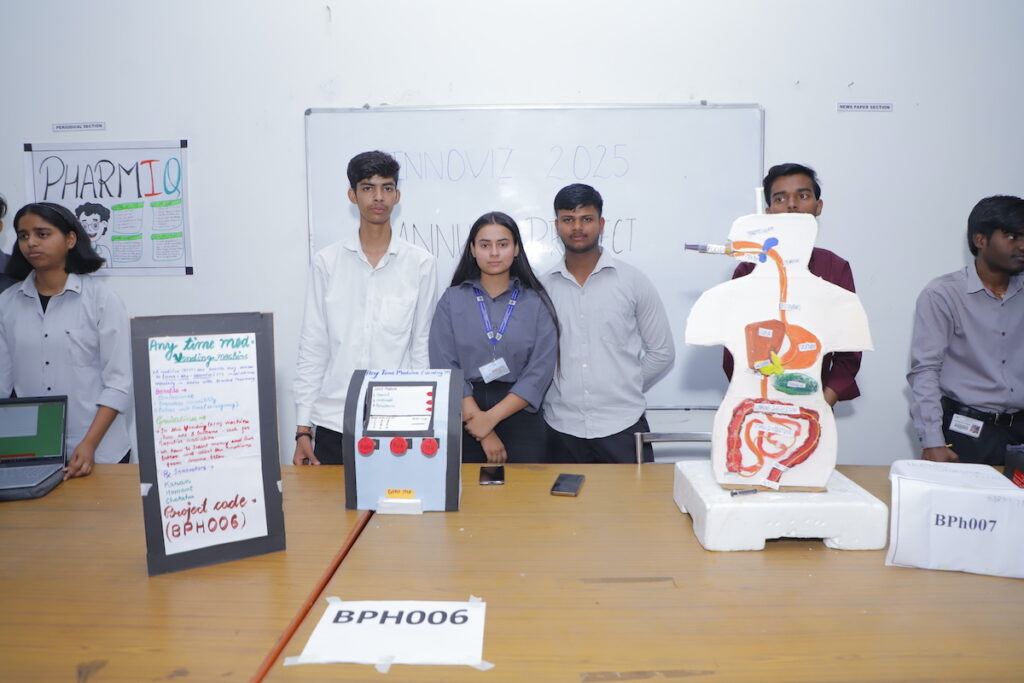
Here are some pathways after D Pharma :
Bachelor’s Degree in Pharmacy
- B.Pharm (Bachelor of Pharmacy): A 4-year undergraduate program that provides a more in-depth study of pharmacy and expands career opportunities.
- Eligibility: Completion of D Pharma, often with entrance exams or direct admission.
Bachelor’s Degree in Science
- B.Sc. in Medical/Pharmaceutical Sciences: A 3-year program focusing on medical or pharmaceutical sciences, which can also lead to further studies or research.
Postgraduate Diploma Courses
- Diploma in Clinical Research: Specializes in clinical trials and research methodologies.
- Postgraduate Diploma in Pharmaceutical Management: Focuses on the management aspects of the pharmaceutical industry.
Master’s Degree
- M.Pharm (Master of Pharmacy): A 2-year postgraduate degree with specializations such as Pharmaceutics, Pharmacology, Pharmaceutical Chemistry, and Pharmacognosy.
- Eligibility: Completion of B.Pharm. Some programs may accept candidates with D Pharma and relevant experience.
Master’s Degree in Business Administration
- MBA in Pharmaceutical Management: A 2-year program focusing on the business and management aspects of the pharmaceutical industry.
- Eligibility: Completion of a relevant undergraduate degree, including B.Pharm or related fields.
Research Opportunities
- Ph.D. in Pharmacy: Pursue doctoral research in various pharmacy fields, requiring a strong academic background and research interest.
Certification Courses
- Certified Clinical Research Coordinator: For careers in clinical research.
- Certified Quality Assurance Specialist: For roles in quality control and assurance.
Advanced Training and Workshops
- Short-Term Courses: Specialized training in areas like drug safety, pharmacovigilance, and regulatory affairs.
FAQs
Can I take Pharmacy course after 10th?
Yes, you can pursue a Diploma in Pharmacy (D Pharma) after completing 10th grade. The D Pharma course is designed for students with a 10th-grade education, offering a direct entry into the pharmaceutical field and foundational knowledge in pharmacy practices.
Which pharmacy course is best after 10th?
After 10th grade, a Diploma in Pharmacy (D Pharma) is typically the best course, providing foundational knowledge in pharmaceutical sciences and practical training. It offers a direct entry into the pharmacy profession and serves as a stepping stone for further studies like B.Pharm or specialized courses.
What is the eligibility for Diploma in Pharmacy course?
To be eligible for a Diploma in Pharmacy (D Pharma), you typically need to have completed 10th grade with a background in Science (Physics, Chemistry, Biology). Some institutions may require a minimum percentage or entrance exam. Check specific college requirements for detailed eligibility criteria.
What is the salary of Diploma in Pharmacy after 10th in India?
The salary for a Diploma in Pharmacy (D Pharma) graduate in India, following a diploma course, typically ranges from ₹15,000 to ₹30,000 per month. This varies based on experience, location, and specific job roles. Entry-level positions such as pharmacy assistants or technicians start at the lower end, while experienced professionals earn more.




